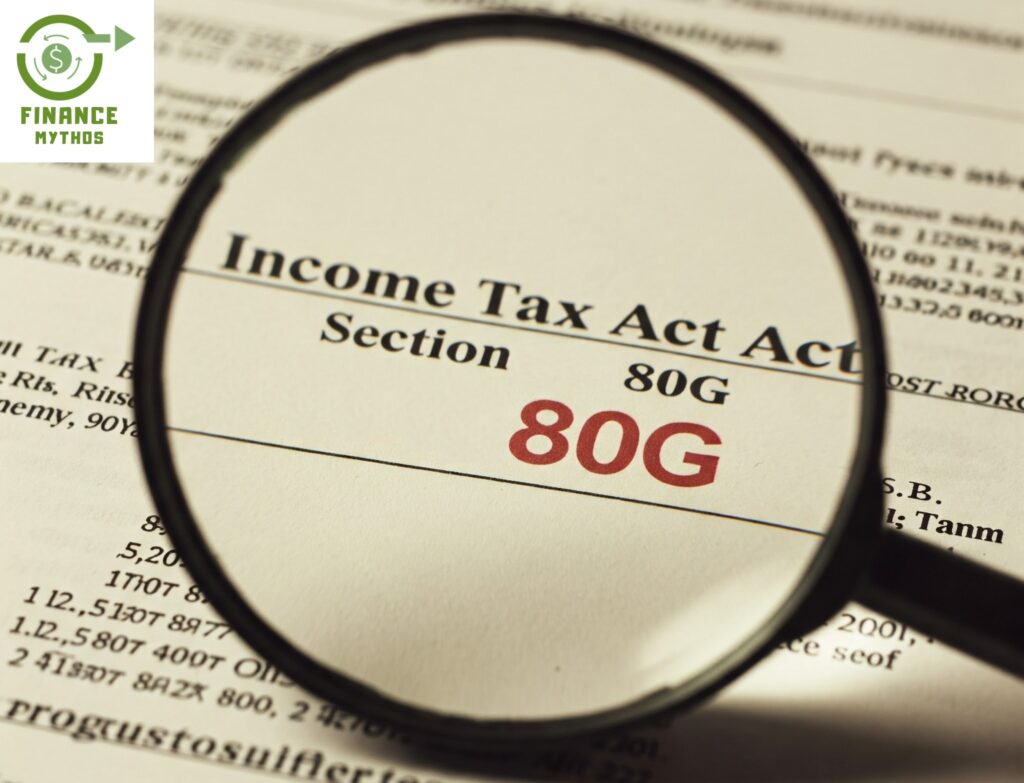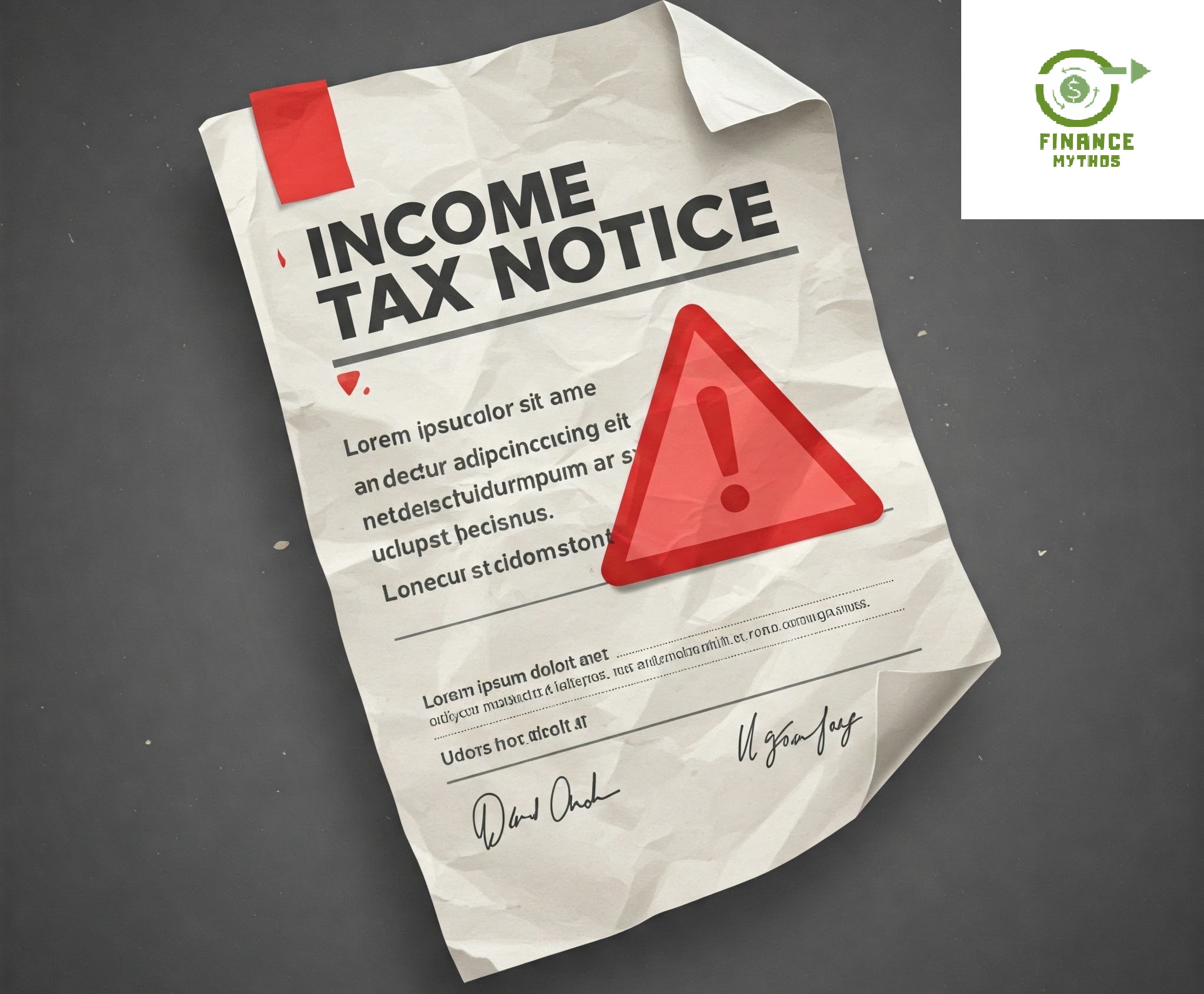The Income Tax (IT) Department has recently sent out notices to thousands of taxpayers regarding alleged tax evasion involving charitable donations. While charitable donations can be a legitimate way to save on taxes, some individuals have misused these provisions to claim excessive tax deductions. In this article, we will break down the reasons behind these notices, the legal framework surrounding charitable donations, and the actions taxpayers should take to avoid penalties.
Table of Contents
ToggleThe Growing Trend of Fake Charitable Donations
A large number of taxpayers have been found to claim significant tax deductions by donating large amounts to charitable trusts. However, these donations are often suspiciously high in relation to the income and expenditures reported by these individuals. Using data analytics, the IT Department identified around 8,000 taxpayers whose reported donations did not align with their financial profiles.
Common Tax Evasion Methods:

- Excessive Donations : Many small business owners and individuals have been found donating amounts far greater than their income to charitable trusts.
- Cash Donations with Kickbacks : Donations were made in using bank transactions, but a portion of the amount was returned to the donor after deducting a commission.
- Falsified Receipts : These transactions were often accompanied by fake receipts, allowing taxpayers to claim deductions they were not eligible for.
The Legal Framework for Charitable Donations
Under Section 80G of the Income Tax Act, donations made to registered charitable organizations are eligible for tax deductions. The IT Department offers various tax breaks depending on the type of organization receiving the donation.
Tax Deductions Available:

100% Deduction: Donations to organizations like the Family Planning Association of India, Red Cross Society, and sports promotion bodies are eligible for 100% tax deduction.
50% Deduction: Donations to religious institutions or for the repair of religious places can avail 50% tax deduction.
Taxpayers can claim these deductions if the donation is made through legitimate means, such as cheque payments. However, if the donation is part of a fraudulent scheme, it will lead to penalties and legal action.
Tax Evasion Tactics and Their Consequences
The IT Department has found that some taxpayers are using donations as a means to whitewash black money. Here’s how the process typically works:
Overstated Donations : Individuals donate money to a charitable trust and then receive a portion of the amount back, disguised as a “commission”.
Tax Evasion via Fake Donations : These individuals then claim tax deductions for donations that were never genuinely made.
The IT Department has started investigating these schemes, particularly looking at whether these trusts are involved in any illicit activities. Notices have been sent to those found to have participated in such activities.
How to Avoid Income Tax Notices
While the IT Department is actively investigating fraudulent tax deductions, taxpayers can take a few steps to avoid penalties and notices:
- Ensure Legitimacy of Donations: Only donate to registered and legitimate charitable organizations. Make sure you receive a proper receipt and avoid cash donations if possible.
- Transparency in Financial Transactions: Ensure that your financial statements and income tax returns match your actual income and expenditures. Discrepancies can trigger investigations.
- Be Cautious with Deductions: Do not overstate your deductions, especially for donations that cannot be substantiated.
- File Tax Returns on Time: Avoid missing deadlines for filing tax returns. Non-compliance can lead to penalties.
Reasons for Receiving an Income Tax Notice
Apart from donation-related issues, there are several other reasons why a taxpayer might receive a notice from the IT Department. These include:
- Mismatch in TDS and Form 26AS: If there is a discrepancy between the tax deducted at source (TDS) shown in your returns and the amounts shown in Form 26AS, you may be issued a notice.
High-Value Transactions :If you purchase a property or engage in large transactions that are not reflected in your tax returns, the IT Department may ask for clarification regarding the source of the funds. - Refund Claims Despite Outstanding Dues: If you claim a tax refund while having outstanding tax dues, you may receive a notice under Section 245.
- Non-Filing of Returns: If you fail to file your tax returns, the department may issue a notice under Section 142.
Consequences of Non-Compliance
If you fail to respond to an income tax notice or do not provide sufficient documentation to support your claims, you may face several penalties:
- Penalties: A fine ranging from 50% to 200% of the tax owed may be imposed on individuals found guilty of tax evasion.
- Tax Dues: If tax evasion is proven, the individual will be required to pay the due tax along with penalties, which could add up to significant amounts.
- Legal Action: In cases of severe tax fraud, the government may take legal action, leading to further complications.
What to Do if You Receive a Tax Notice
If you receive an income tax notice, it is crucial to understand the reason behind it and respond appropriately. Here’s how to deal with it:
- Understand the Notice: Read the notice carefully and check the timeline provided for responding. Failure to respond within the stipulated time can result in severe penalties.
- Seek Professional Help: Consult a tax professional or a chartered accountant to understand the details of the notice and prepare an appropriate response.
- Rectify Errors: If the notice is due to errors in your returns, such as discrepancies in income or deductions, make the necessary corrections and submit them to the IT Department.
Final Thoughts
Tax evasion, particularly through fraudulent charitable donations, is a serious issue that the Income Tax Department is actively addressing. It is essential for taxpayers to ensure that their donations are legitimate and properly documented to avoid penalties. Furthermore, maintaining accurate financial records and filing returns on time can prevent many issues.
For those who receive a notice, it is crucial to act quickly and respond with the necessary documentation to avoid further legal complications. If you have made an honest mistake, it is best to rectify it as soon as possible to minimize the consequences. Always remember, transparency and honesty are key to maintaining good standing with the tax authorities.

Jugaad on Two Wheels: The Hilarious Bike Parcel Hack in Karnataka
The Great Karnataka Bike Parcel Hack: A Jugaad Masterclass #RapidoParcel: In a creative yet controversial move, ride-hailing platform Rapido has found a way around Karnataka’s

Denmark’s Digital Sovereignty Revolution: Linux and LibreOffice Lead the Way
Introduction to Denmark’s Bold Move In June 2025, Denmark’s Ministry of Digital Affairs made headlines by embracing digital sovereignty, ditching Microsoft Windows and Office 365

🏏Sports as a Business Strategy: Insights from Vijay Mallya’s RCB Ownership
🧠 Sports as a Business Strategy (Tool) In modern business, few platforms offer better engagement and emotional connection than sports. From football clubs in Europe

🙏 Apologies in Leadership: Vijay Mallya Public Apology
🧠 Introduction: The Role of Apologies in Leadership In the corporate world, apologies aren’t signs of weakness—they’re strategic acts of leadership. When made with sincerity

Audiobook Production Costs: Navigating Recording Artists, Studio Expenses, and AI’s Impact
The audiobook industry is booming, with over 130 million listeners in the U.S. alone in 2021 and a growing global appetite for audio content. Producing

Media Trial of Vijay Mallya: How Public Perception Shaped Vijay Mallya’s Legacy
Introduction: Media’s Influence on Business Narratives In today’s hyper-connected world, media narratives can make or break a business reputation. For Vijay Mallya, once known as

